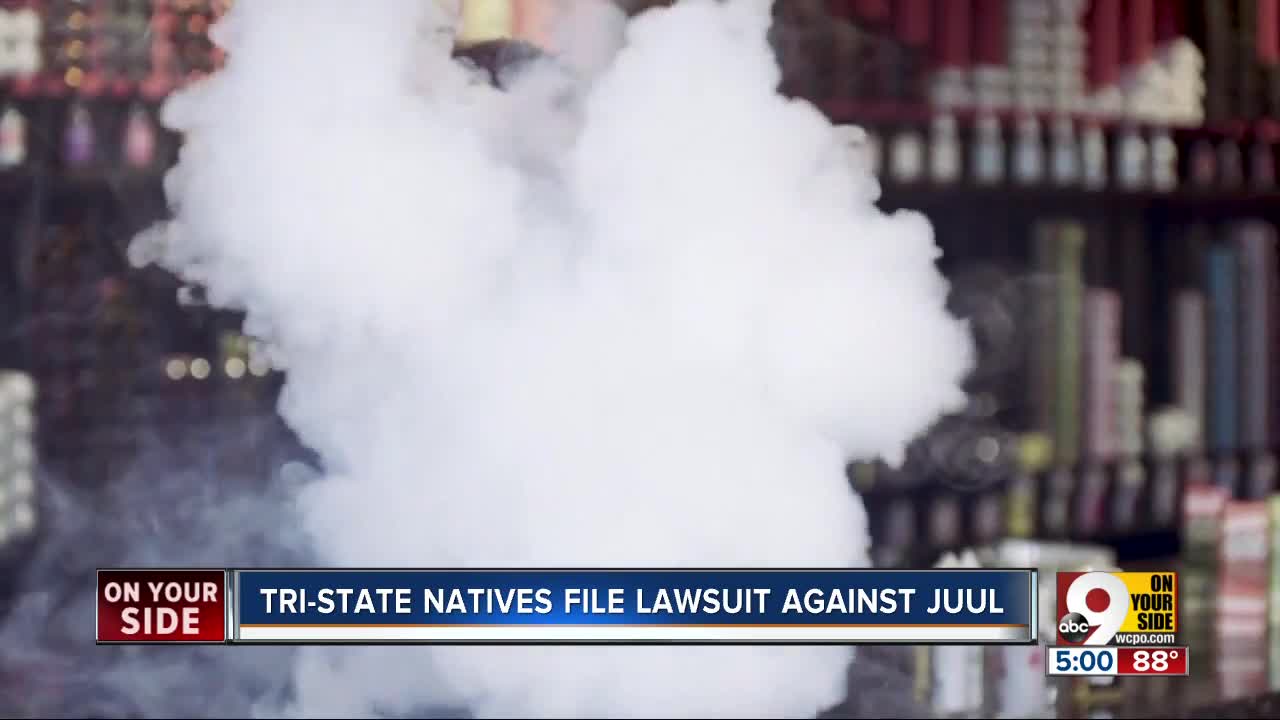CINCINNATI — A pair of Cincinnatians filed a federal class-action lawsuit Friday against the makers of Juul e-cigarettes, arguing amid a rash of vaping-linked illnesses that the company deceived vulnerable customers about the amount and intensity of nicotine contained in its its product.
The suit claims that by marketing the Juul vape pen as a “youthful, contemporary, sexy, trendy and energetic” smoking alternative and failing to disclose that it contained nicotine until mid-2018, the product’s creators took advantage of young people who didn’t understand the risks and smokers who believed it would help them quit.
The plaintiffs represent both groups. According to Friday’s filing in the United States District Court for the Southern District of Ohio, Andrew Tekulve, an 18-year-old college freshman, never smoked cigarettes but began using a Juul as a high school student in 2017. Although he was 16, pods were “popular, ubiquitous and easy to obtain” from 18-year-olds who could legally purchase them. Neither he nor his friends realized at first that the pods contained nicotine, but he now considers himself addicted and consumes four pods each week.
Lawyers wrote the other plaintiff, Morgan Wright, was a pack-a-day smoker attempting to quit when she switched to Juul in 2018. Like Tekulve, she didn’t know how much nicotine was contained in a pod or how potent a dose it would deliver.
Juul Labs leaned into marketing to recovering cigarette smokers such as Wright, according to letters sent to the company from the Food and Drug Administration. As of Friday, the company’s website still advertises the Juul as a smoking alternative and ads encourage smokers to “make the switch.”
Juul Labs’ mission statement reads in part: “We envision a world where fewer people use cigarettes, and where people who smoke cigarettes have the tools to reduce or eliminate their consumption entirely, should they so desire.”
Statements like that misrepresent the Juul as a healthy product, the suit argues. Instead, it delivers a highly concentrated dose of nicotine — roughly the same amount as a pack of cigarette but more intense — and creates or extends addiction in people who did not realize the health risks of using it. Juul Labs did not add a nicotine warning to the outside of the pods’ packaging until spring 2018. In the year leading up to the change, high schoolers' rates of vaping had increased by 78%.
Representatives of the company have argued to Congress that encouraging cigarette smokers to “make the switch” does not imply that the Juul is healthier, just different.
Juul Labs also points to recent changes, including discontinuing its social media accounts and restricting sales of flavored pods, as evidence it is attempting to stop illegal use by teenagers such as Tekulve.
Still, the suit alleges the company’s colorful marketing, variety of pod flavors and longtime reluctance to clearly mark its product as nicotine-based contributed to the problems now faced by Wright, Tekulve and others in Ohio.
The complaint accuses Juul Labs and parent company Pax Labs of fraud, unjust enrichment, failure to warn customers, negligence and public nuisance, among other offenses. Wright and Tekulve request the court issue an injunction against further Juul advertising and award damages to customers.
A recent spate of vaping-adjacent respiratory illnesses has affected around 380 patients, according to the Centers for Disease Control and Prevention. No individual product or ingredient has been definitively linked to the sicknesses, which had claimed six lives by the time Tekulve and Wright filed their suit.
The American Lung Association requested Tuesday that e-cigarette users attempt to stop at least until the CDC investigation was complete. Like quitting cigarettes, however, cutting out vaping is hard. Ex-vapers interviewed by The Verge reported tossing their Juuls out car windows, throwing them in the trash and attempting to sate their cravings with sugar snap peas.
One woman said she ruined her Juul with water and posted about it on social media, hoping that her fear of embarrassment would be stronger than her desire to vape.
"I took this huge stance and told my friends what I had done, so I felt like if I bought pods, I’d just be a f------ idiot,” she said.



